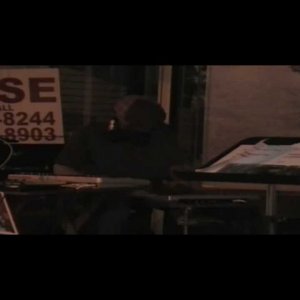As the continent marks the Year of African Languages in 2006 to help promote the use of the mother-tongue, does it matter if Africa's indigenous languages are dying out?
Africa is the most linguistically diverse continent in the world, according to the UN's Educational, Scientific and Cultural Organization (Unesco). People speak close to 2,000 different languages which is a third of the world's linguistic heritage.
New languages such as Kenya's sheng, a mixture of English, Swahili and mother-tongues, are emerging. But up to 300 languages have less than 10,000 speakers, which puts them on the UN's endangered list, and 37 are in danger of completely dying out in the next few years.
So, if people stop speaking the old languages, what, if anything, will be lost? Why do people create new languages such as sheng? How many languages do you speak? Do you know of a mother-tongue that no longer exists?
Your comments
Languages have been dying and new ones have been forming throughout history. In Ethiopia at least a dozen of them have become extinct over the last three centuries such as Argoba, Mayya, Gaffat, Bizamo, Damot and most importantly Geez which is now used only in church readings just like Latin. Dead or dying Geez is survived by three new languages Amharic, Tigrigna and Guragigna. The last family of Argoba speakers was alive as late as the 1960's around the old city of Harar.
Moges,Washington DC USA
I come from Togo, where people speak amongst themselves in local dialects such as Ewe, Kabye, Mina. Since the national language is French I think over the next decade or so these local languages will be gone in favour of French or English. I feel our languages should be given priority over colonial languages but the question is how do you choose a local language as an official language without been seen as favouring a certain tribe over the other. And with this national language are we going to be able to compete favourably with other nations in the world economy.
Aboni, London
At my school in Kenya the children didn't want to learn Kiswahili - they saw it as old-fashioned and only for the poor. I have friends who can barely communicate with their own grandparents.
Olali Ndamby, London, UK
Unless languages are written and adapted to describe developments in modern communications, in science and economics etc. most of our mother tongues will become extinct within the next decade.
Moses Cho, Bamenda,Cameroon
African local languages are hugely important in giving people an identity in a very rapidly changing world. The indigenous languages also carry much of the wisdom of the people who speak them. As the saying goes: "When an old man dies in Africa, it is like a library burning down." The fact that the Bible and other texts continue to be translated into African minority languages shows clearly that for many people it is these languages which speak to their hearts. Despite being an Englishman I'm very proud to be a speaker of an Ivorian language - Sokoweli (Kouya).
Eddie, Southampton UK
Africa has seen a lot of foreign investment in recent years creating jobs for the local people. Being able to secure these jobs and operate in an international market requires knowledge of the more primary languages like Swahili and English and this has put pressure on the survival of the more obscure 'village' dialects. While governments may have improved the reach of education to the rural areas, it is the dream of these youth to move into the cities and make it big, and that involves becoming fluent in the more widely spoken tongue such as English at the expense of their own mother tongues.While this maybe one reason why pidgins like Sheng develop to ease the integration, it is also at the risk of diluting and ultimately losing traditional languages. Africa is losing not only its linguistic heritage but the knowledge it has carried of different cultures, their history and roots.
Kavita Shah, London,UK
The more people there are who speak a language the more important that language is. Minority languages are surely going to die - up to now their only important and significant use is for UN statistics. It is very expensive to incorporate them into the education system hence very difficult to preserve then. And if incorporated they do not have economic use hence people are not interested in them.
Nevin Tunhuma, Netherlands
Languages are not only a purely functional tool. They mean much more in human society from being a tool of social cohesion and group identity, an encoding of a different view of the world, a database of information on the world and much more... like a biological species dying out, if a language is dying, it generally means that something is amiss, whether that is a power struggle in society, social or economical imbalances or in the worst case, genocide because no people gives up its language purely on a whim. So yes, we should care about "small" languages.
Michael, UK
Colonialism, slavery and neo-colonialism are to blame. We identify our selves as Europeans and thus our languages disappear. We have no African identity. People in the UK get shocked when I talk to my fellow tribesmen in English and even wonder why I speak very good English.
Andrew, UK
The culture of civilisation is gradually helping the extinction of indigenous languages. A lot of people in the city find it very difficult to speak their native languages to even their children. Most times you can only know that somebody is Mende or Temne by the type of name he/she carries. Some people feel it's shameful to speak their native tongue in public. Even with the introduction of modern languages in the school's curriculum if people fail to speak their native tongues to their children, then indigenous languages will extinguish gradually.
Andrew Jerome Josiah, Freetown, Sierra Leone
Some people are afraid to speak their language to hide their true identity or win favours. Unless minority groups are protected and respected, some languages will die out.
Wathum Gilbert, Uganda
Languages are useful for communication, and only communication. If a language is spoken by only a few, it is not performing its function.
Ben Sirolly, Tobyhanna, USA
In my country Sierra Leone tribes like yalunka, krim, galiness no longer exist. History tells me that I am krim by tribe but not even my parents can say hallo in the language. Another tribe Kissy is on the verge of extinction slowly being swallowed up by Mende, the country's largest tribe.
Sylvester Suaray, London, UK





